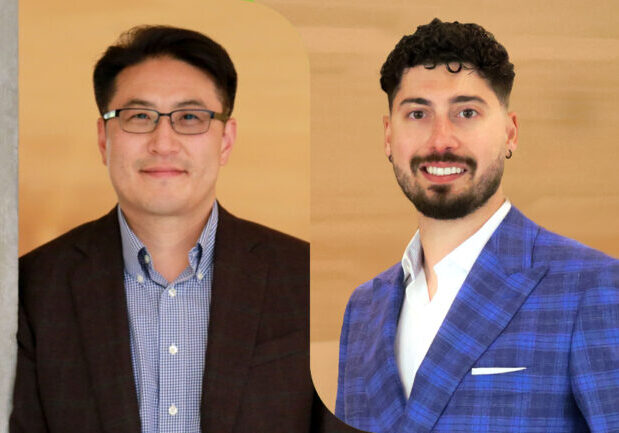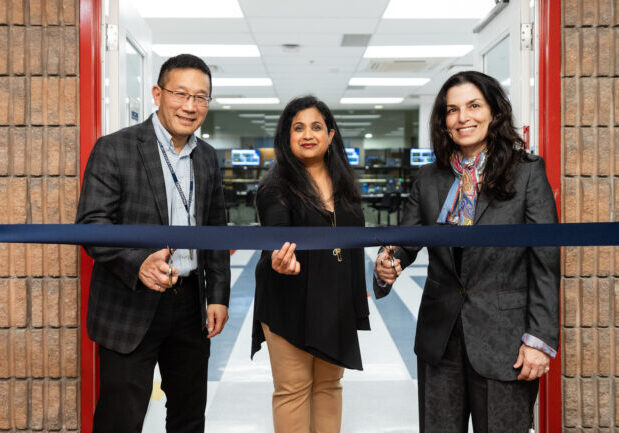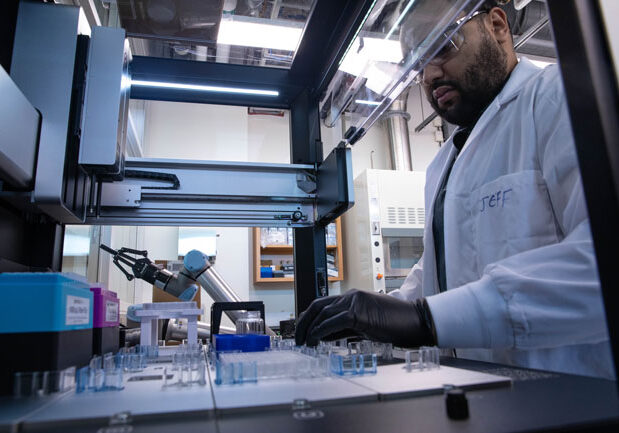
Inventor of the lithium-ion battery Akira Yoshino inspires new collaborations for battery innovation
More than 200 people attended a partnership event hosted at U of T, featuring Honorary Fellow of Asahi Kasei Corporation

Research into ‘robotic skin’ could help restore a sense of touch for those with prosthetic digits
The bio-inspired technology being developed by MIE graduate student Arman Arezoomand could also advance embodied AI and precision manufacturing

U of T Engineering researchers develop safer alternative non-stick coating
A technique called nanoscale fletching has led to a repellent material with greatly reduced levels of per- and polyfluoroalkyl substances (PFAS), sometimes called ‘forever chemicals’

Three members of the U of T Engineering community appointed to the Order of Canada
Professor Tom Chau (BME), Professor Emeritus Adel Sedra (ECE) and alumnus Nathan Leipciger (ECE 5T5, Hon LLD 2019) are among 83 individuals appointed by the Governor General of Canada

U of T Engineering graduate student launches market-ready solution for sustainable transportation
New advanced material formulation improves the durability and efficiency of battery cases for EVs, as well as traditional internal combustion vehicles





